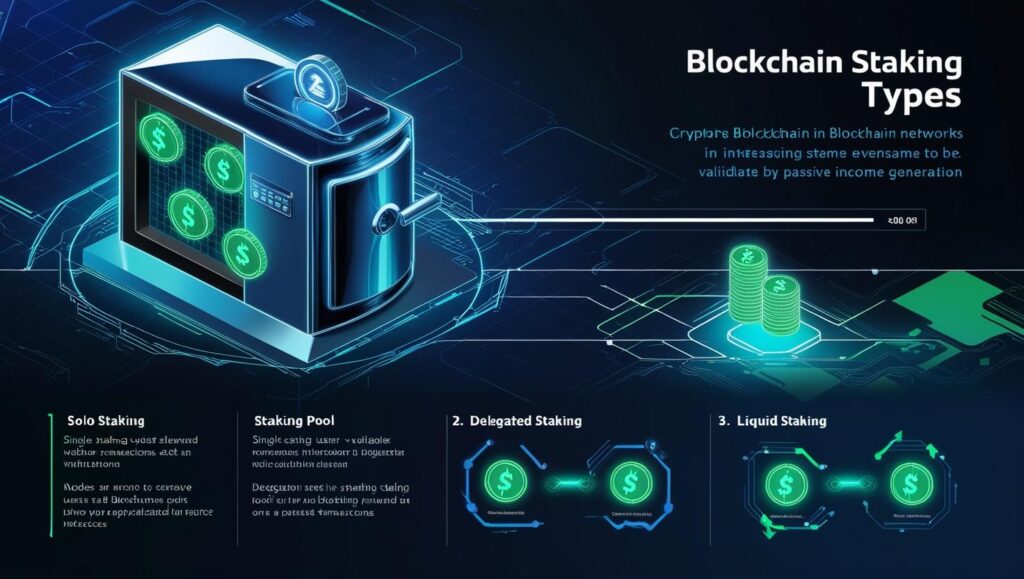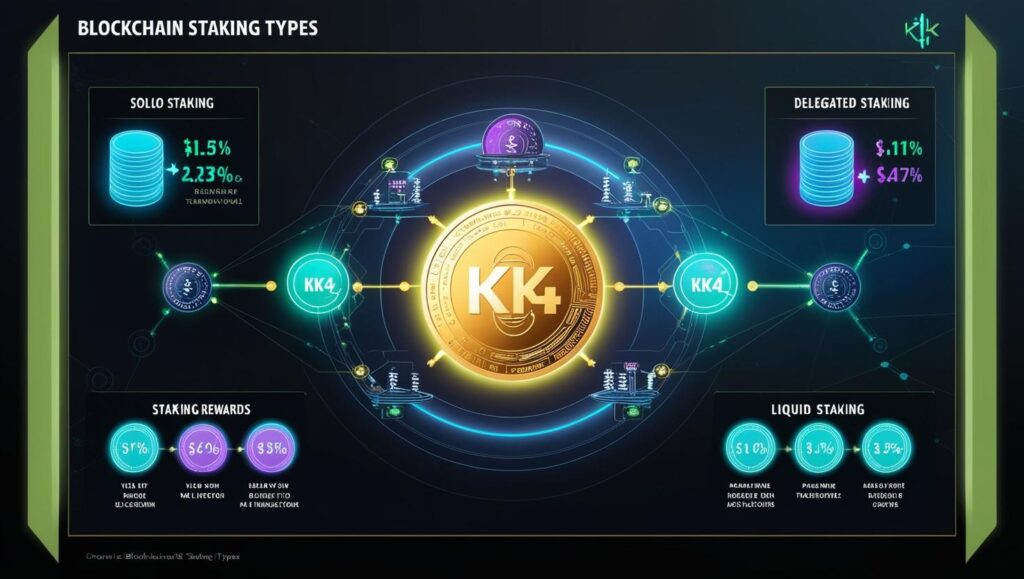Introduction Cryptocurrency isn’t just about trading—there’s a way to earn passive income while holding your tokens! Welcome to staking, a process that allows crypto holders to support blockchain networks and earn rewards. But how does staking work, and why is it such an essential part of blockchain ecosystems? Let’s dive in and explore how you can make money by simply holding and staking your crypto! 🚀💰

What Is Staking in Blockchain?
Staking is the process of locking up cryptocurrency tokens in a blockchain network to help validate transactions and maintain security. In return, stakers earn rewards in the form of additional tokens. It’s similar to earning interest in a savings account, except it’s decentralized and operates through blockchain protocols.
🔹 Why Staking Matters:
✔ Helps Secure the Blockchain – Staked tokens validate transactions and prevent fraud.
✔ Enables Passive Earnings – Instead of just holding tokens, you earn rewards.
✔ Supports Decentralization – The more users stake, the stronger the network.
✔ Lower Energy Usage – Unlike Bitcoin’s mining, staking is eco-friendly.
Staking is a key feature in Proof-of-Stake (PoS) blockchains, replacing energy-intensive mining with a more sustainable approach.
How Does Staking Work?
To understand staking, let’s break it down step by step:
1️⃣ Choose a PoS Blockchain – Not all blockchains allow staking. Popular networks include Ethereum 2.0, Solana, Cardano, and KK4. 2️⃣ Stake Your Tokens – Lock up your tokens in a staking pool or delegate them to a validator. 3️⃣ Validate Transactions – Your staked tokens help confirm transactions and maintain blockchain integrity. 4️⃣ Earn Rewards – In return, you receive staking rewards—newly minted tokens distributed based on your stake amount.
Example: If you stake 10,000 KK4 tokens, the blockchain may pay you an annual return of 8%, meaning you earn 800 KK4 tokens per year!

Types of Staking in Blockchain
There are different ways to stake crypto, depending on the blockchain and user preferences:
💰 Solo Staking (Validator Staking) – Requires running a validator node and locking up a large number of tokens. Best for tech-savvy investors with high capital.
🔹 Delegated Staking (Staking Pools) – Users pool their tokens and delegate them to a validator who handles transactions. Best for everyday users who want low-risk staking.
🔥 Liquid Staking – Stake your tokens while still using them for DeFi activities. Ideal for maximizing rewards without losing liquidity.
Why Stake Crypto? Benefits & Risks
Staking has multiple advantages, but like any investment, it comes with some risks.
✅ Benefits: ✔ Earn Passive Income – Get rewards without actively trading. ✔ Supports the Blockchain – Helps maintain decentralization & security. ✔ Eco-Friendly Alternative to Mining – No need for expensive hardware or energy-intensive mining. ✔ Lower Volatility Compared to Trading – Holding and staking reduces frequent buying and selling.
⚠️ Risks: ❌ Lock-Up Periods – Some blockchains require staked tokens to be locked for weeks/months. ❌ Price Volatility – If the token’s price drops, your earnings may be lower in value. ❌ Validator Risks – If you stake with a bad validator, you could lose part of your rewards.
💡 Tip: Always choose reliable staking providers or pools to reduce risks!

Claim 1000 KK4 Tokens Daily!
🎉 To celebrate staking, we’re giving away 1000 KK4 tokens daily! Want to participate? Follow these steps:
1️⃣ Follow KK4 on all social media platforms
2️⃣ Drop your Solflare wallet address in the comments of our latest video.
3️⃣ Paste your wallet address under our latest Twitter post.
🔗 Claim Your KK4 Airdrop Here:
